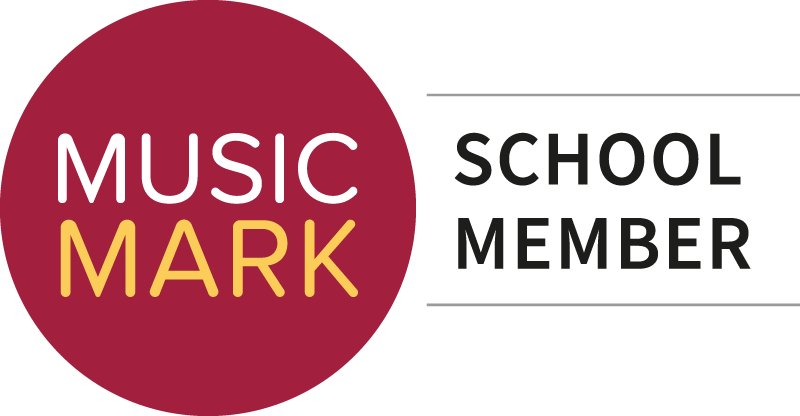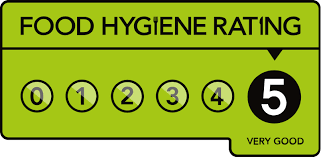SEND
SEND at Belmore Primary Academy
At Belmore Primary Academy we believe that children with Special Educational Needs and/or a Disability should be identified and appropriately supported in order for them to thrive in all aspects of their lives, prioritising the well-being of the child being at the ‘heart’ of our practice. We believe that children should be offered full access to a broad, balanced and inclusive curriculum to enable them to become valuable citizens and reach their full potential. We also ensure that all staff are aware of the needs of individual children and receive up-to-date information and training wherever necessary.
It is through a commitment to work together with those within our school community, and other relevant external agencies, that we ensure that our children receive the best provision to be able to successfully participate fully in all aspects of school life.
The Children and Families Bill 2014 required local authorities to publish and keep under review information about services that they expect to be available for children with disabilities and special educational needs. This is called the Local Offer.
Information about the Local Offer for Hillingdon can be found online at:
https://www.hillingdon.gov.uk/article/4654/SEND-local-offer
Schools are also required to publish a SEND Information Report which reflects the ethos and provision for children with SEND across the whole school.
1. School SEND provision
Belmore Primary Academy is an inclusive school which will consider all pupils regardless of their Special Educational Needs. Admissions for SEND pupils follows the same route as all pupils’ admissions in agreement with the Academy policy, based on the principles of equality of opportunity and access for all. We are able to support pupils with a range of needs including:
- Specific Learning Difficulties
- Autism Spectrum Condition
- Attention Deficit Hyperactive Disorder
- Dyspraxia
- Speech, Language and Communication difficulties
- Social difficulties
- Physical and medical needs
- Social, Emotional and Mental Health concerns
We also support pupils with undiagnosed but apparent difficulties and advise parents/carers in order to gain a diagnosis when appropriate.
2. School SEND Policy
A variety of factors are considered when identifying and assessing a pupil with SEND. Pupils would likely be assessed for SEND if they:
- Are working at National Curriculum levels significantly below those designated for their age;
- Make little or no progress despite receiving a differentiated curriculum;
- Display poor communication skills, expressive and/or receptive skills;
- Require greater attention than most in the class;
- Require specialist equipment or support for sensory/ physical difficulties;
- Score poorly on group tests or individually administered standardised tests of attainment and/or ability;
- Display a specific difficulty in an area of the curriculum;
- Transfer from a different school with a previous SEND status;
- Have concerns that a parent/carer, teacher or other professional alerts us to.
All lessons are adapted to support the needs of all pupils. However, despite an adapted curriculum, some pupils struggle to make sufficient progress. Identification of these pupils and their area of need is initially done by the class teacher. The pupil’s progress is then monitored and supported by the SENDCo using relevant assessments such as Language Link assessments. Additional information may also be collated from teachers’ feedback, liaison from outside agencies, parents/carers, observations etc. All staff follow a reflective cycle called the Assess-Plan-Do-Review graduated approach, whereby each child’s provision and progress are reviewed termly.
Pupils identified as having a SEND need are included, with parents’ consent, on the school SEND register as SEN support (SEN K) and are provided with a one-page profile and provision map which documents the additional support the pupil will receive. If a successful application of an Education Health & Care Plan is obtained, EHCP provision is implemented and monitored termly through Learning Plans and annually through Annual Review Meetings.
Parents Evenings are further opportunities to reflect on progress and feedback to pupils, parents and carers. In order to evaluate the effectiveness of the provision for all pupils with SEND, all interventions and support offered to pupils is regularly monitored and evaluated by the SENDCo along with class teachers and members of the SENDTeam.
3. School approach to teaching pupils with SEND
Belmore’s approach to teaching pupils with SEND is to recognise the students’ individual strengths and difficulties, meet their individual needs and take positive actions to ensure that they have equal and inclusive access to the educational opportunities offered by the school. It is recognised that the needs of pupils are best met alongside their peers and the school encourages all pupils to take a full and active part in the life of the school, following the curriculum and also extracurricular activities before school, at break or lunch times and after school. Pupils with a Statement/EHCP may also benefit from the following depending on their needs:
- Specific, non-classroom-based interventions;
- Recommendations and support from relevant external agencies, such as the Speech & Language therapist
The school promotes a mainstream inclusive education for all pupils. Teachers are encouraged to use adaptations and extension activities for all lessons to promote a positive learning environment for all pupils through quality first teaching. Teachers have access to all information and files for SEND pupils in their classes and are involved in the termly creation and update of One Page Profiles or Learning Plans. Pupils are taught in both mixed attainment groups and attainment sets where appropriate, using a ‘stage not age’ approach. Where groups are set this is reviewed regularly by Year Group Leaders and SENDCo and changes made when appropriate.
For a small group of children with statements/EHCPs, core lessons are accessed in Warhol and Einstein class, which are located in our intervention space. Our SEN teacher uses a bespoke, multi-sensory curriculum focusing on objectives from the Hillingdon SCERTS framework and Year 1/2 National Curriculum. Learning opportunities are also provided to support children in developing their independence, developing their social interaction and improving their speech, language and communication skills. Children accessing this provision still have access to the breadth of the curriculum in their mainstream classes and enrichment activities such as trips.
4. School facilities and resources for supporting SEND
The SEND Department is led and managed by the SENDCo. Belmore Primary Academy is DDA compliant in terms of its building and service. Pupils with a physical disability are able to access all lessons.
5. School staff development and training related to SEND
The SENDCo is an experienced teacher/leader and will be completing a National Award for SEND Coordination.
Belmore Primary Academy are part of Hillingdon’s Inclusion Commitment which provides specialist training on supporting children with Autism (ASD).
Teachers and new staff are trained as part of their induction package on:
- SEN information
- Inclusive teaching for all pupils
- Strategies to support SEND students
Training is delivered by:
- The SENDCo
- Year Group Leaders
- External agencies
6. School consultation arrangements for pupils with SEND
Each pupil who has been identified as having a special need will have a One Page Profile written and reviewed by the class teacher in collaboration with the SENDCo, the pupil and the parents/carers. Pupils will also have their provisions mapped out and these will be shared with parents termly.
All pupils and parents/carers have the opportunity to discuss progress or raise issues during the school year through:
- Parent evenings
- Informal ‘drop in’ sessions
- Pupil or parent/carer surveys
- Email or phone call to the SEND department
- Annual Review or SEND support meetings
- Half termly SEND coffee afternoons
7. School partnerships
Staff at Belmore Primary Academy work closely with the following agencies:
- Hillingdon Inclusion Team
- Speech and Language Therapists
- Occupational Therapist
- Educational Psychologist
- Social Care
- Child and Mental Health Service (CAMHS)
8. Support for parents
Hillingdon SEND Local Offer
Further information regarding support services for SEND which are available in Hillingdon can be found in the SEND Local Offer. The link to access this is included below.
https://www.hillingdon.gov.uk/article/4654/SEND-local-offer
Hillingdon SENDiass
Hillingdon SENDIASS is a free, confidential and impartial support service for parents and carers, children and young people up to 25 years where the child or young person has or may have special educational needs.
https://www.hillingdonsendiass.co.uk/
01895 277001
Hillingdon Parent Carers Forum
Hillingdon Parent Carers Forum exist to harvest the voice of parents/carers resident in the London Borough of Hillingdon, to help shape the services accessed by our SEND children and young people aged 0 to 25, by way of co-production with the Local Authority. They have links on their webpage to a range of useful resources for parents.
https://hillingdonpcf.com/
Autism Support
Arts for Life Project
Activities for Children with Additional Needs
The Doodle Den, St Matthews Church Community Hall Annexe, Hallowell Road, Northwood, HA6 1DW
Telephone: 020 8064 0822
Email: enquiries@artsforlifeproject.org
Website: Doodle Den – Arts for Life Project
Triple P Positive Parenting Program
Parent and Carer Support
Telephone: 0207 987 2944
Email: nhsnwl.triplep-hillingdon@nhs.net
Website: https://www.triplep-parenting.uk.net/uk/triple-p/
Hillingdon Autistic Care and Support (HACS)
Parent and Carer Support
Dudley Place, Off Pinkwell Lane, Hayes, Middlesex, UB3 1PB
Telephone: 020 8606 6780
Email: enquiries@hacs.org.uk
Website: http://www.hacs.org.uk/
Centre for ADHD & Autism Support (CAAS)
CAAS aims to support, educate and empower individuals diagnosed with ADHD or who are autistic, their families and the community. Through raising awareness we change perceptions and break down barriers. CAAS provides support and understanding in a safe and non-judgemental environment. As well as having relevant qualifications, the personal experience of staff along with empathy and understanding, allows our clients to feel a sense of belonging when they access the centre. We provide a comprehensive service that acknowledges that clients need support pre- and post- diagnosis. We believe in early support rather than crisis management and our holistic approach encompasses the whole family.
www.adhdandautism.org
02084291552
How does Belmore Primary Academy know if my child needs extra help?
- Parents notify us as part of the School Induction process
- Information is passed on from previous school
- Regular analysis of children’s progress
- Discussions with parents when concerns arise
What should I do if I think my child may have special educational needs
Make an appointment to meet with the class teacher. The class teacher will liaise with the school’s Special Needs Coordinator and if necessary arrange for a meeting to discuss further.
How will Belmore Primary Academy support my child?
- The first priority is to ensure that all children are receiving First Quality Teaching within the class that is differentiated to meet the needs of all pupils
- Additional resources, training and support from the school’s Special Needs Coordinator will be provided in order to meet the needs of children with additional needs
- A range of interventions are run to provide additional support outside of class lessons to meet the specific needs of the children where a concern has been identified
- Parents will be informed of any concerns and additional in class support/intervention that is being put in place
- A child on the SEN register will have a provision map which will outline specific targets and the intervention/support that child will be receiving
- Governors are responsible for monitoring the effectiveness of the provision in place for pupils identified with SEND and they will receive a report from the Special Needs Coordinator (SENCO)
How will both you and I know how my child is doing?
- Progress data is collected and analysed at least termly. Children with SEND are highlighted in data analysis to monitor progress.
- Individualised provision maps will be reviewed termly to monitor progress on set targets.
- All interventions are monitored for impact and outcomes are defined at the start of any intervention which will show if the intervention is meeting your child’s need.
How will you help me to support my child's learning?
- We will arrange a meeting with you if we have any concerns or suggestions on how you can help us to help your child with their learning.
- Parent s are encouraged to chat with the class teacher during ‘soft start’ if further ideas and advice is wanted on how to support your child’s learning, or if necessary a meeting time arranged.
- Annual reports and Parents’ Evenings give all parents and carers regular feedback on their child’s up to date academic levels, individual reading, writing and maths targets and any behavioural, emotional or social difficulties.
- Pupils’ views will be obtained and when appropriate, they may attend all or part of any meeting.
- If you require further support our school’s Pastoral Manager may be able to provide this for you, or assist you in gaining access to appropriate agencies.
What support will there be for my child's overall well-being?
- Regular curriculum activities, assemblies and lessons in Personal, Social, Health and Citizenship and Social and Emotional Aspects of Learning (SEAL)
- Additional support from Learning Mentors can be arranged as needed for individual children; a tailored plan may be put in place for pupils with the highest need.
- Attendance is monitored daily to support families to prevent unauthorised absence.
- Our Behaviour Policy includes guidance on expectations, rewards and sanctions is fully understood and in place by all staff.
- Relevant staff are trained to support medical needs. We have a medical policy in place.
- Pupils’ views are sought through school council and other forums.
- Pupils are encouraged to apply for leadership roles throughout the school such as Head boy and girl, prefects and House Captains.
What specialist services and expertise are available at or accessed by Belmore Primary Academy?
- Educational outside agencies include: Educational Psychology (EPS); Outreach Services, including ASD; Specialist Resource Provisions at other settings, Special Educational Needs Consultants and Education Welfare Office (EWO).
- Specialist health services such as Speech and Language Therapy (SALT); Physical and Sensory Support Service (PSSS), which includes Hearing Impaired Service (HI) and Visually Impaired Service (VI); Occupational Therapy (OT); Physio-therapy (PT); Child and Adolescent Mental Health (CAMHS) other health professionals.
- Community based support agencies include: Belmore Children’s Centre, Social Services, Special Educational Needs and Disabilities Information and Advice Service (SENDIAS formerly Parent Partnership) and Community Police
What training have the staff supporting children and young people with SEND had or are having?
- Time and money is regularly invested in training our staff to improve provision for all students.
- Our Special Educational Needs Co-ordinator (SENCo) is qualified and is an experienced teacher and holds the National Qualification in Special Educational Needs, as well as receiving ongoing SEN training in specific areas.
- All staff members, including TA, HLTAs and SMSAs receive training to best support our pupils with SEND, for example in dyslexia, Autism, Social, Emotional and Behavioural difficulties and speech and language needs.
- Our Equality/InclusionPolicy promotes involvement of all of our learners in all aspects of the curriculum including activities outside the classroom.
- Where there are concerns for safety and access, a personalised risk assessment is carried out to consider if reasonable adjustments can be made to meet any additional needs; if appropriate parents/carers are consulted and involved in planning.
How accessible is the school's environment?
- We have an Accessibility Plan in place and where feasible, make reasonable adjustments to improve the accessibility of our environment to meet individual needs. Our policy and practice adheres to The Equality Act 2010.
- Our school makes use of translation sites via our website and endeavour to arrange for a translator to attend meetings when necessary.
How will the school prepare and support my child to join Belmore Primary Academy?
- We have an Induction programme in place for welcoming all new learners to our school.
- When necessary we will contact a new child’s previous school to gain further information in order to provide appropriate support promptly.
How will Belmore support my child's transfer to Secondary School?
- We have very good relationships with our feeder settings
- Information is shared to support pupils’ learning and well-being at transition
- Enhanced transition programmes are developed for identified children that may require additional support.
How are Belmore Primary Academy's resources allocated and matched to children's special educational needs?
- Finances are monitored and audited regularly.
- Resources are utilised to support the strategic aims of our setting as well as individual learner needs.
- Interventions are costed and evaluated to ensure a ‘value for money’ service.
How is the decision made about what type and how much support my child will receive?
- It is an expectation that all children receive Quality First Teaching within the class that meets children’s needs.
- Should additional support be required, this is undertaken after consultation with the relevant staff, the learner and their families as necessary.
- The SENCo oversees all additional support and regularly shares updates with the SEN Governor.
How are parents involved at Belmore Primary Academy and how can I be involved?
- Belmore Primary Academy strives to work in partnership with parents to support each child/young person’s well-being, learning needs, progress and aspirations.
- Belmore Primary Academy has an open-door policy to allow parents to contact their child’s class teacher with ease.
- Parents are invited to become involved in school-life through a number of means such as ‘soft start’ each morning, ongoing invitations to school events throughout the year, volunteering, consultations and completing parent view surveys.
- Parent workshops and/or in class visits to model our approaches to learning in various subjects, giving parents the confidence to support their child’s learning at home.
- Our Governing Body includes Parent Governors/representatives.
Who can I contact for further information?
- In the first instance, parents/carers are encouraged to talk to their child’s class teacher.
- For students with SEND, further information and support can be obtained from the SENCo, Mr Gohil.




